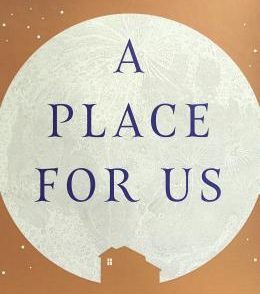The basis of the sermon text is below the audio (if you want to hear what actually came from the preacher’s mouth… you’ll need review the FaceBook Recording https://fb.watch/4ORRynKibb/
Sermon “There’s A Place For You”. Sunday April 11, 2021. St. Stephen’s Episcopal Church, Goldsboro, NC. The Reverend Alan Neale
A while ago we watched the harrowing movie “Silence”, describing the bold courage and exquisite suffering of Christian missionaries in 17th century Japan. A character comments “Long years of secrecy have turned their faces into masks”. Perhaps in churches too many, for too long have worn masks of confident and unquestioning faith whereas their hearts and souls were churning with doubt and uncertainty. Thomas (blessed Thomas) encourages us to stop this business and “come clean” and then… be renewed.
A good and new friend of mine here at St. Stephen’s shared with me a lecture named “Faith & Intellect”, presented by Doris Betts in 1982.
She writes, “I belong to the tribe of the Apostle Thomas – a natural doubter wishing I could have touched the wound myself, could have done myself a definitive study of the Turin Shroud. In Sunday School, I was the child who kept bringing up the wives of Cain and Abel… from where did they come? I quizzed the preacher about Scripture and had answers back from Scripture… oh, I knew by instinct what a circular argument was…”
Do you belong to the tribe of Thomas?
Thomas the Doubter makes his first appearance in John 14:4-5. Jesus tells the disciples “You know the way”. Thomas immediately responds, “Lord, we do not know the way”. And by the time we come to John chapter 20 Thomas appears as the fully fledged, soundly graduated doubter of doubters. “I will not believe,” he tells his brothers, “until I have seen with my own eyes and touched with my own hands”.
Maybe Thomas was doubter by birth, by nurture? His nickname (Didymus, The Twin) provides insight into his character that doubtless caused his friends to use this nickname. As far as we know, Thomas had no twin and so maybe the nickname indicated that whenever he faced a decision he found himself immediately in converse with himself (a twin), faced with any decision – it was as if a committee established itself in his soul and endless conversations ensued. Even Didymus is somewhat onomatopoeic – didymus, didymus, didymus. Nature, nurture can all combine to create a personality prone to doubt, uncertainty, questioning. No wonder there are books written “My Genes Made Me Do It”. Only yesterday I read in a biography of Clarence Darrow “By instinct, he was a doubter of the majority.”
Maybe Thomas was doubter by association – the Gospel records show ample evidence that his fellow disciples were often beset with doubt at best and sometimes downright unbelief at worst. It is not easy to be apart, aloof from doubt when those with whom we live… doubt and doubt often.
And, maybe, Thomas was a doubter by choice. Whenever I hear today’s Gospel passage I hear something of pique in Thomas’ whining complaint… “Unless I see… I will not believe”. All this has for me some resonance with a whining child who is peeved that others have what he/she does not and will not come out to play unless he/she enjoys the same experience, receives a similar gift.
Many years of parish ministry have taught me that questions about faith, leading to expressions of doubt, often have more to do with the psyche of the doubter than with the presenting theological conundrum.
The eleven disciples are gathered in that tiny room after the awful, wretched and stunning events of Good Friday. They lie low and they fear for their lives. When John writes, “The door were locked were fear of the Jews” he refers not only to the substantial door barred at the entrance but also to the lockdown that had taken place in the souls of the disciples because of fear, uncertainty and anxiety.
For a short while Thomas leaves the group; when he returns he expects to encounter the same psychic situation but all has changed. Probably the ten disciples, somewhat insensitively but thoroughly understandably, rush to Thomas and at one time all try to tell him… what he has missed. Maybe Thomas thought, “Well that sucks” or some more contemporary Aramaic expression? “I venture out on some errand for you all and what is my repayment… you all bubbling over with faith and me… nothing!”
Here we see what I consider to be a stunning miracle of community, an admirable example for churches and all faith communities. For one whole week this community of faith was also a community of doubt; for one whole week the community sustained and supported not only the faithful but also the doubter. And this is how it should be, and this is what I believe to be the authentic nature of the Anglican/Episcopal church.
It was not easy – Thomas cautious and wary not to unsettle the resurrected faith of his friends and his friends cautious and wary not to have Thomas feel ostracized and alienated.
This is the brilliant pattern of a community of faith and doubt that we enjoy and we invite friends, family and neighbors to share.
Thomas, beloved by Anglicans, reminds us:
that doubt is human, it should be neither repressed or demonized;
that doubt is best expressed in a loving, secure, inspirational community of faith;
and that doubt cannot affect one jot or title that though Jesus died… He now lives and shares that life with all.
Alleluia, Christ is Risen. He is risen indeed, Alleluia.

